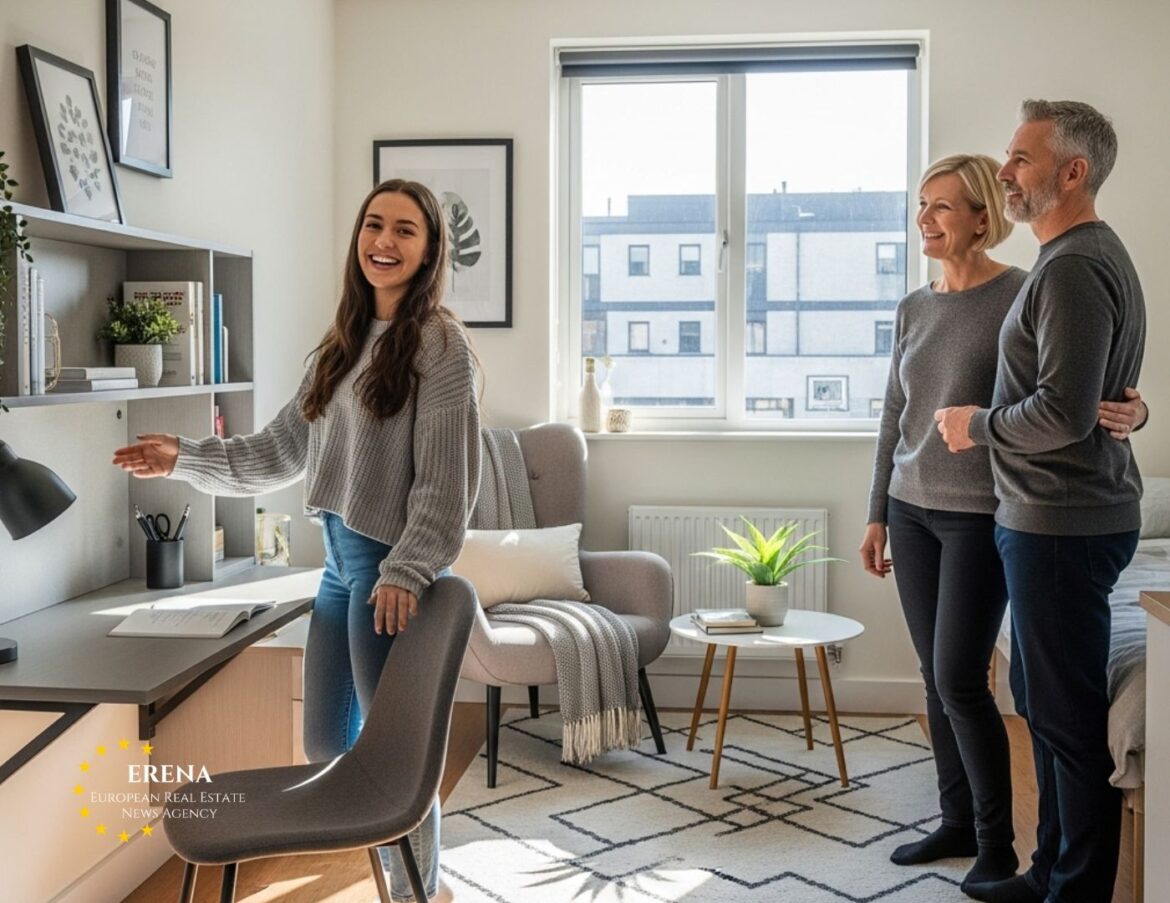Studying in a different city or country is often the first step toward independence — and for many parents, it’s also a time to rethink their housing strategy. With rent prices climbing across Europe, buying a flat instead of paying rent has become a strategic and increasingly popular choice.
In major university hubs like Paris, Berlin, Lisbon, or Prague, monthly rents for student housing easily range from €800 to €1,200. Over a three-to-five-year study period, this adds up to tens of thousands of euros with no return. Purchasing a small apartment can offer long-term benefits such as value appreciation, cost control, and potential income generation.
Location Is Key
Proximity to the university is essential. Properties located within 15–20 minutes by foot, bike, or public transport are most desirable. The best areas are often those that also offer access to supermarkets, cafes, gyms, pharmacies, and green spaces.
In Paris, the 5th and 13th arrondissements are favored by students of the Sorbonne and other universities. In Lisbon, the areas of Campo de Ourique or Areeiro are popular for their affordability and access. In Berlin, districts like Neukölln and Friedrichshain offer good value while remaining close to the city center and universities.
Price Guide in European University Cities
Here is an overview of current starting prices in euros for compact student apartments in major cities:
| City | Studio (25–35 m²) | 1-Bedroom Flat (35–50 m²) |
|---|---|---|
| Paris, France | from €220,000 | from €280,000 |
| Barcelona, Spain | from €170,000 | from €230,000 |
| Lisbon, Portugal | from €150,000 | from €200,000 |
| Prague, Czechia | from €130,000 | from €180,000 |
| Budapest, Hungary | from €110,000 | from €150,000 |
| Berlin, Germany | from €190,000 | from €250,000 |
While prices depend on location, condition, and amenities, small and efficiently designed units often deliver the best return for both living comfort and resale or rental value.
What to Check Before Buying
When evaluating potential purchases, parents should consider:
- Legal status and ownership documents
- Building maintenance and any upcoming renovations
- Natural light, noise levels, and security features
- Energy efficiency and utility costs
- Resale and rental potential after graduation
A thorough inspection and professional advice are highly recommended, especially for international buyers unfamiliar with local property laws.
Financing and Additional Costs
European banks often offer mortgages to non-residents or parents with documented income. In 2025, typical mortgage rates range from 3.5% to 5.5%, depending on country and bank. Many parents choose to pay in cash, but financing can help spread the investment over time.
Besides the purchase price, other costs include:
- Notary fees and taxes (3%–10% depending on country)
- Agency commissions
- Monthly building charges (€50–€150)
- Property tax (varies locally)
A local real estate advisor can help estimate the total cost and guide you through the buying process.
Post-Graduation Strategy
After graduation, the apartment may serve multiple purposes:
- Sell it and realize any capital gain
- Rent it out to other students, generating a stable monthly income
- Keep it for younger children or as a family holiday flat
- Convert it into a furnished mid-term or long-term rental
In student-rich cities, there is often consistent demand, keeping occupancy levels high and reducing the risk of vacancy.
Purpose-Built Student Housing as an Alternative
Some parents opt for units in managed student residences. These properties often come furnished and offer extra services like reception, Wi-Fi, laundry, and maintenance. They may be more expensive per square meter, but offer hassle-free ownership and professional management. Yields of 4–6% per year are common.
This is a good option for those who want an investment with less day-to-day responsibility.
Conclusion
Buying a student flat can be a smart long-term move. It offers peace of mind during your child’s studies and the potential for significant financial return. Key factors to consider include location, legal checks, realistic budgeting, and post-graduation plans.
With thoughtful planning and local guidance, a student flat can be more than just housing — it can be a gateway to future wealth, independence, and opportunity.

